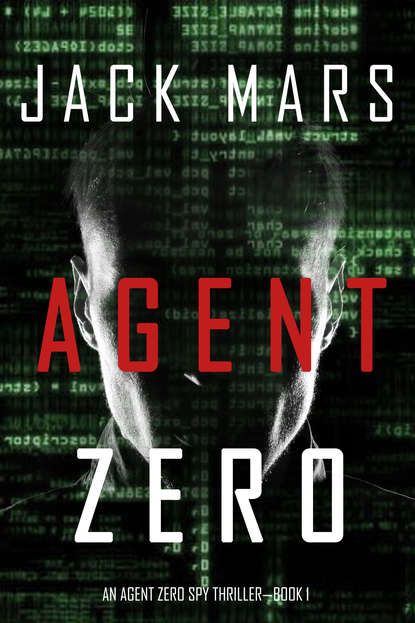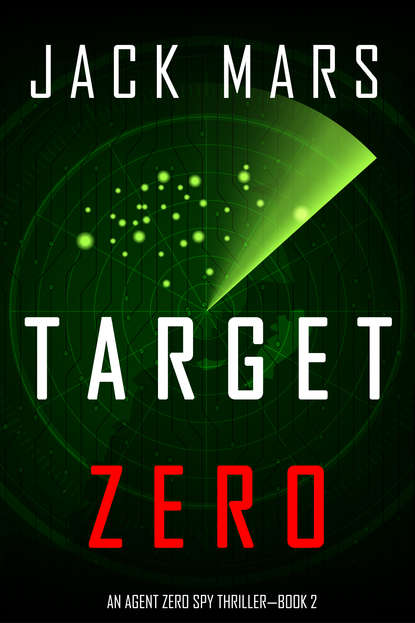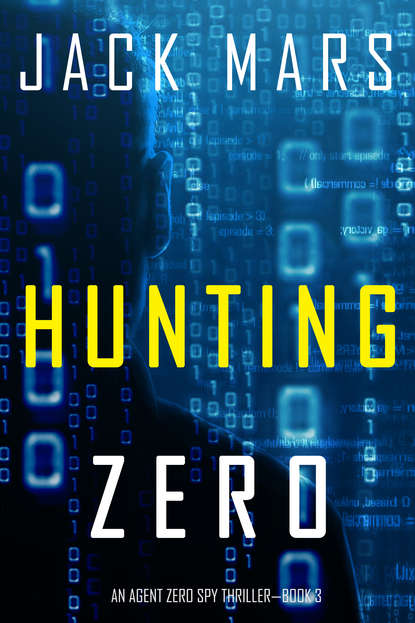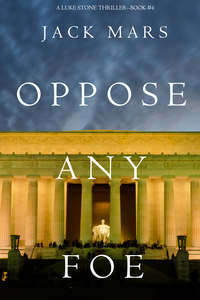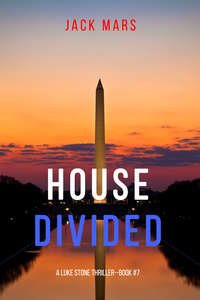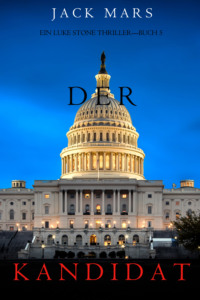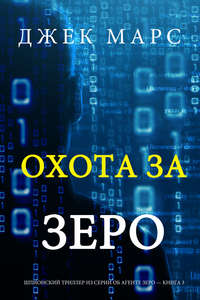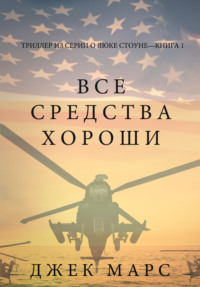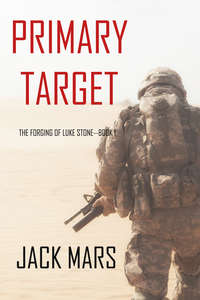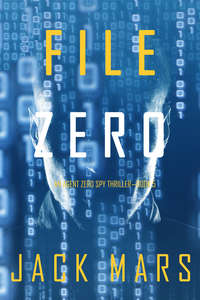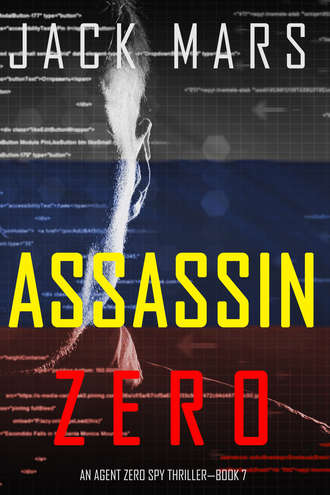
Полная версия
Assassin Zero
A tiny object sailed toward Samara and landed near her feet. She picked it up gingerly between two fingers. It was a Tootsie Roll. She couldn’t help but smirk. What an incredibly bizarre tradition this was, the youths of the wealthiest country in the world scrambling over one another to fetch the cheapest of treats tossed idly onto the pavement.
Samara joined Mischa near the cab of the truck, the end facing away from the parade and its patrons. She held out the candy. A flicker of curiosity passed over Mischa’s young, passive face as she took it.
“Spasiba,” the girl murmured. Thank you. But rather than unwrapping and eating it, she stuck it in the pocket of her jeans. Samara had trained her well; she would get a reward when she deserved one.
Samara lifted the radio to her lips again. “Initiate in thirty seconds.” She did not wait for a reply; instead she put in her earplugs, a soft but high-pitched tone whining in her ears. The four men in the cargo space of the truck would take it from there. They did not have to expose the weapon; they did not even have to lift the rolling gate at the rear of the truck. The ultrasonic frequency was capable of traveling through steel, through glass, even through brick with little hindrance to its efficacy.
Samara clasped her hands in front of her and stood beside Mischa, silently counting down. She could no longer hear the marching band, or the applause of the parade-goers; she heard only the electronic whining tone of the earplugs. It was strange, seeing so many sights but hearing nothing, like a television on mute. For a moment she thought of that ridiculous adage: If a tree falls in the forest and no one is around to hear it, does it make a sound? Their weapon did not make a sound. The frequency was too low to register on a human’s auditory spectrum. But there would still be falling.
Samara did not hear the music or the general din of the crowd, and she did not hear the screams when they began either. But mere moments after her countdown reached zero, she saw the bodies falling to the asphalt. She saw the citizens of Springfield, Kansas, panicking, running, trampling one another like so many children clambering for candy. Some of them writhed; several vomited. Instruments clattered to the street and buckets of treats spilled. Not twenty-five yards from her, a football player fell to his hands and knees and spat a mouthful of blood.
There was such beauty in chaos. Samara’s entire existence had been based on regime, on protocol, on practice—and yet few knew as well as she did how unreliable all of that could be when mayhem reared its unpredictable head. In those situations, only instincts mattered. It was then that one truly became aware of the self, of what one was capable of. In the chaos that unfolded silently before her eyes, families trampled over their own loved ones. Husbands and wives abandoned their partners in the interest of self-preservation. Confusion reigned; bodies toppled. The crowd would end up doing more damage to each other than the weapon would do to them.
But they could not linger. She nodded to Mischa, who rounded the cab and climbed into the passenger seat as Samara got behind the wheel and put the key in the ignition. But she didn’t turn the engine over just yet. They would give it one more minute—long enough for the fallout of the attack to be considered truly devastating, and leave those who would be pursuing them utterly perplexed by the significance of Springfield, Kansas.
CHAPTER SEVEN
Zero entered the George Bush Center for Intelligence, the headquarters of the CIA, in the unincorporated community of Langley, Virginia. He strode across the expansive marble floor, footsteps echoing as he trod over the large circular emblem, a shield and eagle in gray and white, surrounded by the words “Central Intelligence Agency, United States of America,” and headed straight for the elevators.
There was hardly anyone there, a skeleton crew of security guards and a few administrative assistants toiling on paperwork. He was still pretty sour about being called in, being called away from his girls on a holiday, and hoped that the briefing, as its name suggested, would be brief.
But he wasn’t about to bet on it.
“Hold the door,” called a familiar voice as Zero pressed the button for the sublevel on which the meeting was being held. He stuck out a hand to keep the doors from closing, and a moment later Agent Todd Strickland trotted in beside him. “Thanks, Zero.”
“They called you in too, huh?”
“Yup.” Strickland shook his head. “Just as I got to the VA hospital, too.”
“You spend Thanksgiving with veterans?”
Strickland nodded once, casually, which Zero took as an indication that it wasn’t something he wanted to discuss. Todd Strickland was just shy of thirty, thick-necked and well-muscled, still favoring the military fade style of haircut that he’d worn during his time with the Army. His bright eyes, boyish features, and clean-shaven cheeks gave him a youthful and approachable aspect, but Zero knew that behind the façade was a force to be reckoned with, one of the best the Rangers had ever seen. Todd had spent almost four years of his young life tracking insurgents through Middle Eastern deserts, sleeping in sand, climbing through caves, and raiding compounds. He was a fighter, through and through, and yet he’d managed to maintain a compassion that was just as strong as his sense of duty.
“Any idea what this is about?” Zero asked as the elevator doors slid open.
“If I had to guess? Probably the attack on Havana last night.”
“There was an attack on Havana last night?”
Strickland chuckled lightly. “You really don’t watch the news, do you?” He led the way down an empty corridor. It seemed that just about all of Langley was enjoying the holiday at home with their families—except for them, of course.
“I’ve been a bit busy,” Zero admitted.
“Speaking of, how are the girls?” Strickland was no stranger to Maya or Sara; when the girls’ lives were threatened by a psychopathic assassin, the young agent had made a vow that he would keep an eye out for them, regardless of whether Zero was around or not. So far he had stuck to his word.
“They’re…” He was about to simply say “they’re good,” but he stopped himself. “They’re growing up. Hell, maybe grown up already.” Zero sighed. “I gotta be honest. If we get sent out somewhere today, I’m not sure what I’m going to do about Sara. I don’t think she’s well enough to be left on her own.”
Strickland paused as they reached the closed conference room door, beyond which the briefing would be held. But he lingered, and reached into his back pocket. “I was kind of thinking the same thing.” He handed Zero a business card.
He frowned. “What’s this?” The card was simple, ivory, embossed with a website and phone number and the name “Seaside House Recovery Center.”
“It’s a place in Virginia Beach,” Strickland explained, “where people like her can go to… recuperate. I spent a few weeks there myself, once upon a time. They’re good people. They can help.”
Zero nodded slowly, a little taken aback by how everyone seemed to see it but him. Maya had already told him that Sara needed professional help, and evidently it was plain to Todd as well. He knew precisely why he’d been blind to it; he wanted to be able to help her. He wanted to be the one who pulled her through it. But he had already known, deep down, that she needed more than he could offer her.
“I hope this wasn’t overstepping any boundaries,” Todd continued. “But, uh… I gave them a call to make sure they had space. There’s a spot for her, anytime she wants.”
“Thank you,” Zero murmured. He didn’t know what else to say; it certainly wasn’t overstepping any boundaries to do something that Zero probably wouldn’t have brought himself to do. He stuck the card in his pocket and gestured toward the door. “After you.”
He had attended scores of briefings in his time as a CIA agent, and no two were alike. Sometimes they were populated and chaotic, with representatives from cooperating agencies and video conferences with subject-matter experts. Other times they were small, quiet, and confidential. And even though he was certain that this one was going to be the latter, he was still quite surprised to enter the conference room and find only one person seated at the table, a single tablet in front of her.
Strickland seemed equally puzzled, because he asked, “Are we early or something?”
“No,” said Maria as she stood. “Right on time. Have a seat.”
Zero and Todd exchanged a glance and took seats on either side of Maria, who was at the far head of the long table.
“Well,” the younger agent muttered, “isn’t this cozy.”
“I’m sorry for taking you away from the holiday,” she began. “You know I wouldn’t if I had a choice.” She said it as if it was meant more for Zero; Maria knew precisely who and what was waiting for him at home. After all, she’d been invited as well. “I’ll get right into it,” she continued. “Last night, an incident occurred on the northern waterfront of Havana, and we have strong reason to believe that it was a calculated terror attack.”
She told them everything they knew; that more than one hundred people experienced a wide range of symptoms, and that the proximity of those impacted the worst suggested the use of an ultrasonic weapon positioned near the water’s edge. As she explained, her fingertips slid across the tablet’s touch-screen, navigating through photos of emergency services in Cuba aiding the victims. Some of them needed support just to stand; others had thin trails of blood running from their ears. A few were carried off on stretchers.
“There was only one casualty,” Maria concluded, “a young American woman on vacation. And the weapon was not found, hence our involvement.”
Zero had heard of this kind of ultrasonic weapon before, at least something like it, but aside from the tiny sonic grenades that Bixby had cooked up, he didn’t have any experience with them. But he had to acknowledge that despite the lack of any visual on a weapon or perpetrators, it did sound very much like a terrorist attack—which only made it more confusing.
“Kent?” Maria prodded. “Penny for your thoughts?”
He shook his head. “Honestly, I’m a little perplexed. Why go through the trouble of building or buying this kind of weapon when a single assault rifle and a few magazines would have done a lot more damage?”
“Maybe it wasn’t about the damage,” Strickland suggested. “Maybe it was a message. For all we know, the perps could have been Cuban. They targeted a touristy area; maybe they’re nationalists, and this was some sort of violent protest.”
“It’s possible,” Maria admitted. “But we need to work on facts—and the only facts we have right now are that American citizens were part of this, one of them is now dead, and this weapon is still out there… which is where you two come in.”
Zero and Strickland glanced at each other, and then Maria. For a minute there, he had started to think that this might have just been an intelligence briefing, keeping them abreast of what had happened in Cuba, but with those few words he now understood what it really meant.
There was no doubt about it; he was being sent back into the field.
“Hang on,” said Strickland. “You’re saying that someone, somewhere in the world, has a fairly portable and powerful sonic weapon, and you want us to what? Just go find it?”
“I understand it’s not much to go on…” Maria started.
“It’s not anything to go on.”
Zero was a little surprised by Strickland’s attitude; at heart he was still a soldier, and never spoke that way to a superior, not even Maria. But he understood, because while Strickland expressed indignation, Zero felt a wave of anger. This was why he was pulled away from Thanksgiving, from reuniting his family? He felt for the victims of the Havana attack, but his skills were typically put to use stopping nuclear wars and avoiding mass casualties, not to go off on a wild goose chase for a weapon that had claimed a single life.
“We do have something,” Maria told Strickland. “A handful of eyewitnesses at the harbor claim to have seen a group of men, four or five of them, wearing some sort of protective mask or helmet, and loading a ‘strange-looking object’ onto a boat immediately following the attack. The details are sketchy at best, but a few people also reported seeing a woman with bright red hair, possibly Caucasian, among them.”
“All right, that’s something,” Strickland agreed, appearing to shove down any further protests he might have voiced. “So we go to Havana, find out about the boat, who owns it, where it was going, where it is now, and follow the trail.”
Maria nodded. “That’s the long and short of it. Bixby is working up some tech that should help. And I don’t mean to be pushy, but President Rutledge did use the words ‘as soon as possible’ on this order, so—”
“Can we talk?” Zero blurted suddenly, before Maria could give the official go-ahead for them to act. “Privately?”
“No,” she said simply.
“No?” Zero blinked.
She sighed. “I’m sorry, Kent. But I know what you want to say, and I know that if you do I’ll likely give in and try to get you off the hook. But this came from the president. Not from me, not from Director Shaw—”
“And where’s Director Shaw now?” Zero found himself asking heatedly. “At home, I’m guessing? Getting ready to enjoy Thanksgiving with his family?”
“Yes, Zero, that’s exactly where he is,” she replied firmly. She never called him Zero; coming from her, it felt like being scolded. “Because it’s not his job to be here. It’s yours. Just like it’s not my job to put my own neck on the block for you again and again. My job is to tell you where you need to go and what needs doing.” She tapped the tablet twice with a finger. “This is where you’re going. This is what you’re doing.”
Zero stared down at the tabletop, smooth and polished to a reflective sheen. He had foolishly thought that he and Maria could still be friends after all they’d been through. But at the end of the day, this was how it would shake out. She was his boss, and this was what it felt like to have rank pulled on him.
He did not at all like the feeling, not any more than he liked the idea of the president commanding that he be put on this. As far as he was concerned, this was a complete waste of his skills. But he didn’t bother saying that.
“Just look at the state of things.” Maria’s tone softened, but she didn’t look directly at either of them. “We’ve got a trade war on our hands with China. Our ties to Russia are all but severed. Ukraine is less than pleased with us. Belgium and Germany are both still pissed about what they believe was an unsanctioned op last month. No one trusts our leadership—least of all our own people. We don’t even have a vice president yet.” She shook her head. “We cannot allow for the possibility of an attack on US soil, even if it’s just a possibility. Not if we can help it.”
Zero wanted to argue. He wanted to point out that the efficacy of two men, highly trained or not, was still paltry compared to a cooperative effort of law enforcement agencies. He could understand why they didn’t want to make a big public issue out of this, but even so—if they truly wanted to find these people, if they really thought that an attack on the US was likely, they could put out an APB, starting with coastal areas of Florida, Louisiana, Texas, the best estimates of potential targets considering the Havana attack. Have the Cuban government investigate the missing boat. Work together, as they should, to protect their respective citizens and anyone else who might be hurt along the way.
And Zero was about to suggest it aloud too, but before he got the chance, Maria’s cell phone rang.
“One sec,” she told them before answering with her typical greeting: “Johansson.”
Then her face fell slack, and her gaze met Zero’s. He had seen that expression before, many times—far too many for comfort. It was a look of shock and horror.
“Send me everything,” Maria said into the phone, her voice a hoarse whisper. She ended the call, and he already knew what she was going to tell them before she even said it.
“There’s been an attack on US soil.”
CHAPTER EIGHT
Already? Zero was stunned by the speed with which a subsequent attack had come—he had clearly underestimated the severity of the situation.
But he was even more shocked when Maria told them where it happened.
“The attack was on a small town in the Midwest.” Maria studied the tablet screen, scrolling through the intel just as fast as it was coming in. “A place called Springfield, in Kansas—population of eight hundred forty-one.”
“Kansas?” Zero repeated. If they had gotten all the way to Kansas since the Havana attack, that meant… “They must have traveled by plane.”
“Which means this was planned,” Strickland added. The young agent stood suddenly, as if there was something he could do in that moment. “But why? What could possibly be significant about a one-horse town in Kansas?”
“No idea,” Maria murmured. Then her hand flew to her mouth. “Oh my god.” She looked up at Zero, her eyes wide. “There was a parade going on. College kids, families… children.”
Zero took a deep breath, working to mentally put distance between the part of him that was a father and former professor, and the part of him that was an agent. “Fallout?”
“Unclear,” Maria reported, staring back down at the tablet. “This just happened. The first nine-one-one call was twenty-three minutes ago. But…” Her throat flexed in a gulp. “Initial reports from first-responders are claiming sixteen dead at the scene. Though it’s likely more.”
Strickland paced the short length of the conference room like a tiger waiting to be sprung from a cage. “We can’t assume the casualties were entirely the result of the weapon. Some could have been from panic.”
“But maybe that’s the point,” Zero murmured.
“Hang on, we’ve got a video incoming.” Maria tilted the tablet, and both men crowded at her shoulders to see it. She pressed play, and the screen filled with the shaky perspective of someone filming with a cell phone. The scene was of a small town’s main stretch, the camera angle directed up the block, catching in its lens the sidewalks jammed with people and chairs on both sides of the avenue.
From around the corner up ahead came a group of young people in green and white uniforms—a marching band, stepping in time with their instruments aloft, the approaching music drowning out the din of applause and cheers.
“They’re almost here, Ben!” said a cheerful female voice, presumably the woman behind the camera phone. “Are you ready? Wave to Maddie!”
The camera panned down briefly, showing a little boy who couldn’t have been more than five or six, an enormous smile on his face as he waved at the oncoming band. Then it panned back up, showing a group of young men in green jerseys coming around the corner behind the band—a football team, it appeared, tossing handfuls of candy from buckets.
A knot of dread formed in Zero’s stomach, knowing that disaster was about to strike.
The transition wasn’t sudden. It was slow and bizarre, unfolding over the next several seconds. Zero leaned closer, apprehensive yet rapt as he watched.
First, the camera panned down slightly, and he just barely heard the woman behind it as she muttered, “Does anyone else feel that? What is that…?”
Almost at the same time, several members of the band stepped out of cadence. One by one, instruments stopped playing as gasps and confused shouts mingled with the cheers.
A trumpet hit the street. Then a body. Band members stumbled. Behind them, the young men in jerseys keeled. The camera shook terribly as the woman whipped left and right, looking for a source, or perhaps trying to make sense of what was happening.
“Ben?” she shrieked. “Ben!”
Screams rose from the crowd as it surged in every direction. For all of two seconds, Zero witnessed absolute chaos; people running over one another, holding their heads, clutching stomachs, falling over. Then the phone was dropped to the street and the screen went black.
“Jesus,” Strickland murmured.
Zero rubbed his chin as he stepped back from the table. He had only been half-right; it was true that a single assault rifle would have done more damage, but this—an invisible force, a hidden weapon, no assailants in sight—this was downright harrowing. It had simply swept through the street like a slow breeze, affecting hundreds of people in seconds. If something like this got out…
“Is this video public?” he asked.
“I hope not,” Maria said, clearly thinking the same thing he was. “It came from Springfield PD, which is…” She consulted the tablet again. “Only five officers strong. We’ll do what we can on our end, but I doubt they’ll be able to keep that under wraps.”
“If that gets out, people are going to panic,” said Strickland.
“Exactly,” Zero agreed as he worked out a theory aloud. “In Havana, they struck at a packed tourist district. In Kansas, a busy parade route. Populated areas that appear random. Maybe they’re trying to prove that their weapon is just a catalyst, and that people will do just as much damage to each other as they can do to them.”
“So it could be a message after all,” said Strickland as he paced the conference room.
It was the only thing that made sense in the moment; an attack on such a small town was an attempt to make their targets appear random in order to sow panic and confusion. “But if that’s the case, what would happen if they got this thing into New York City? Or Washington, DC?”
Strickland stopped pacing. “They’re practically taunting us. Telling us that the next target could be anywhere. At any time.”
“So far local authorities aren’t sure what happened,” Maria announced. “It doesn’t seem like anyone but us is linking it to the sonic attack on Havana—yet.”
“But as soon as they do,” Zero added, “no one is going to feel safe.” He was already imagining it; something as innocent as walking down a busy street and being caught in an ultrasonic blast. Not knowing what was happening or where it was coming from or what to do or how to stop it.
It was a terrifying thought, even for him.
Maria’s tablet chirped suddenly. Zero glanced over her shoulder to see an incoming call on the CIA’s encrypted server, but instead of displaying a source it simply read, “SECURE.”
Maria took a breath and answered. It was a video call; a smartly dressed brunette woman suddenly appeared, looking solemn as a statue.
“Deputy Director,” said the woman by way of greeting.
“Ms. Halpern.”
Zero didn’t recognize the woman’s face, but he knew the name; Tabitha Halpern was the White House Chief of Staff under President Rutledge. And he knew the background behind her quite well. She was sitting in the Situation Room, a place he had been numerous times before.
“I have the president here with me,” Halpern said. “He’d like a word.” She reached forward and swiveled the screen until it settled on Jonathan Rutledge, seated at the head of the conference table. He wore a white shirt with the sleeves pushed to his elbows, a blue tie knotted loosely around his neck, and a world-weary expression on his face.
“Mr. President.” Maria nodded. “I’m sorry you had to take that seat twice in one day.”
“So you’ve heard?” Rutledge said, skipping the formalities.
“Yes sir. Just now.”
“Is that him behind you? I want to speak to him.”
Zero hadn’t realized that he was partially in the camera’s view—and if he knew that he would be videoconferencing with the president, he would have put on something nicer than a T-shirt and a light jacket. Maria passed him the tablet, and he held it in front of him.
“So you’re the one they call Zero,” Rutledge said simply.
“Yes sir, Mr. President,” he replied with a curt nod. “It’s unfortunate that we have to meet under these circumstances.”
“Unfortunate. Yes.” Rutledge rubbed his chin. There was something about him that seemed… well, to Zero it seemed less than presidential. He looked lost. He looked like a man in over his head. “Have you seen the video of the attack, Agent?”
“I have, sir. Just now. ‘Terrible’ doesn’t quite do it justice, but it’s the first word that comes to mind.”


